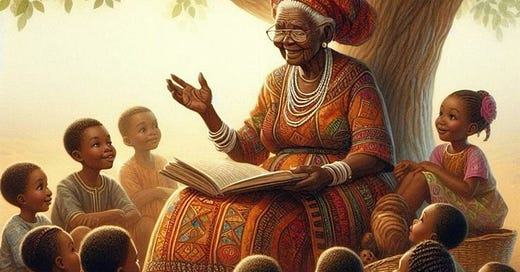The line between virtue and vice has been blurred over the centuries. The kind of movies and books being produced these days says a lot about that. Even old stories are being modified to fit this narrative. Good old Cinderella has a modern version where evil is not so bad, and concepts like the “good witch” and “nice villain” are being sold to the consciousness of our children.
The academic world has thrown the dichotomy of virtue and vice out the window and has reduced the greater purpose of learning to employability and economic advancement. The success or failure of a student is measured by academic performance based on grading scales. This has been stretched further to determine who will be successful in the future and who will not. We have also seen that some students will go to any length to come out on top in class, even if it means resorting to unwholesome acts.
This is not to say that academic excellence is bad. No teacher wants to put in effort all year to train their students only to have them return with results that make it seem as though they had not done a good job throughout the year. The question is not whether our students come back with good results; the question is, “What are they learning?” Is the goal of teaching to rate our teaching skills so highly, or to ensure that our students can boast of excellent results? But if their hearts have not been endeared toward knowledge that leads to good character, and if they have not seen reasons to become virtuous citizens of their nations, then what is the point? Have they been taught to love learning so much that they will seek knowledge for its own sake outside the four walls of the classroom? We have successfully trained the minds of students and teachers to think that knowledge which does not contribute to academic or economic performance is irrelevant.
“Knowledge that does not lead to an appreciation of truth, goodness, and beauty is incomplete and does not contribute to the formation of an upright human being.”
The knowledge of science should lead a learner to revere God as a wonderful creator. The knowledge of mathematics should help a learner appreciate God as a God of order. The knowledge of history should make a student see how God orchestrates His plan and purpose in a world that sometimes feels like chaos and disaster. Knowledge that does not lead to an appreciation of truth, goodness, and beauty is incomplete and does not contribute to the formation of an upright human being. The mindset of the average modern person tells us that, at the core of our learning, something is missing.
Is it any wonder why leadership in Africa is, for the most part, in the stronghold of those who have thrown virtue out the window? Going by what we have come to define as success, the corrupt politician is more successful than the virtuous citizen who is using their skills to build an enterprise that will empower themselves and those around them. Our academic world has forgotten that the students of today will need to think rightly in the future to be able to vote, marry, work, live, and serve in the world they inhabit.
The language we use toward our students really matters. In subtle ways, or otherwise, through the hidden curriculum, virtue is no longer something to be applauded, and vice is no longer something to be abhorred. Instead, only academic success or failure is praised or condemned, respectively. Unfortunately, the portrait of the average modern teacher cannot be regarded as virtuous. In fact, schools are not necessarily looking for virtuous teachers; they need teachers who can deliver the scheme of work to students on time. This also goes back to the kind of education they themselves received, and the cycle continues.
It is time we return to a time when knowledge is sought for its own sake, when a student would rather perform poorly than engage in malpractice, when teachers remember that they are training whole beings created in the image of God, and when virtue is not just something to be written about in civic education examinations but something to be practiced in every facet of life.
Knowledge is beautiful, but we must be watchful not to raise knowledgeable criminals.
Fayokemi Adiukwu is an educator who is passionate about helping her students see truth, goodness, and beauty as revealed by God to mankind. She is a mother and mentor who is actively engaged in teaching, homeschooling, Sunday school, and teen mentoring. Her joy is watching children embrace and love the truth of God’s Word.






Very sobering.
I love this!